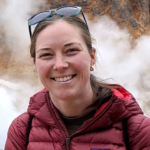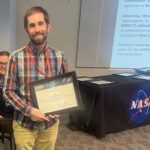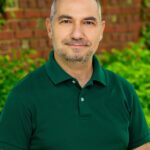By Chris Riotta
On Thursday, April 11, 2013, the University of Maryland’s Council on the Environment hosted a “brown bag luncheon” at the UMCP STAMP Student Union in College Park, Maryland. Chris Elfring, from the National Academy, was the guest speaker and discussed the new Gulf of Mexico program at the National Academy of Sciences (NAS) in Washington D.C.
The new $500 million dollar program comes after the explosion of the Deep-water Horizon Drilling platform in the Gulf of Mexico that killed 11 workers and caused extensive ecological damage. The incident caused 200 million gallons of crude oil to leak into the Gulf. Shortly after, a settlement agreement resolving criminal charges against BP and Transocean was reached, and in it NAS has been delegated to establish the new program on human health and environmental protection in the Gulf of Mexico.
Chris Elfring was hand-selected to be the program director of the new program, which is still currently in the planning phases. The program is focused on “human health and environmental protection in the Gulf of Mexico and on the United States’ outer continental shelf, including issues relating to offshore oil drilling and hydrocarbon production and transportation.”
$350 million dollars is coming from BP, and the other $150 million from Transocean. However, Elfring plans to spend less than seven million within the first year. “We’ll stockpile the rest of the funds to use in a manner that will allow us to look back 30 years from now and see that we caused an impact”. Elfring says the program will be entirely independent from BP and Transoceans’ ongoing restoration efforts, and the National Academy of Sciences is the sole proprietor of how the money is going to be spent.
At the luncheon, Elfring discussed the connections her program has made at the Gulf of Mexico, as well as efforts being made to form a volunteer advisory group and a small core staff. She says that, within the first 90 days, the program is already beginning communication/outreach activities and creating a “forward-looking and long-term perspective”.
Elfring did admit that she sees some obstacles coming her way. “I think the biggest difficult we’ll face is finding a focus; how are going to do things that will allow us to do real good?” However, she is confident that with the time span and resources available, NAS will be able to create a sustainable and positive impact on the Gulf of Mexico.
For more information on the new program at the National Academy of Sciences, visit http://www.nas.edu/gulfprogram or contact Chris Elfring, Program Director at CElfring@nas.edu.





